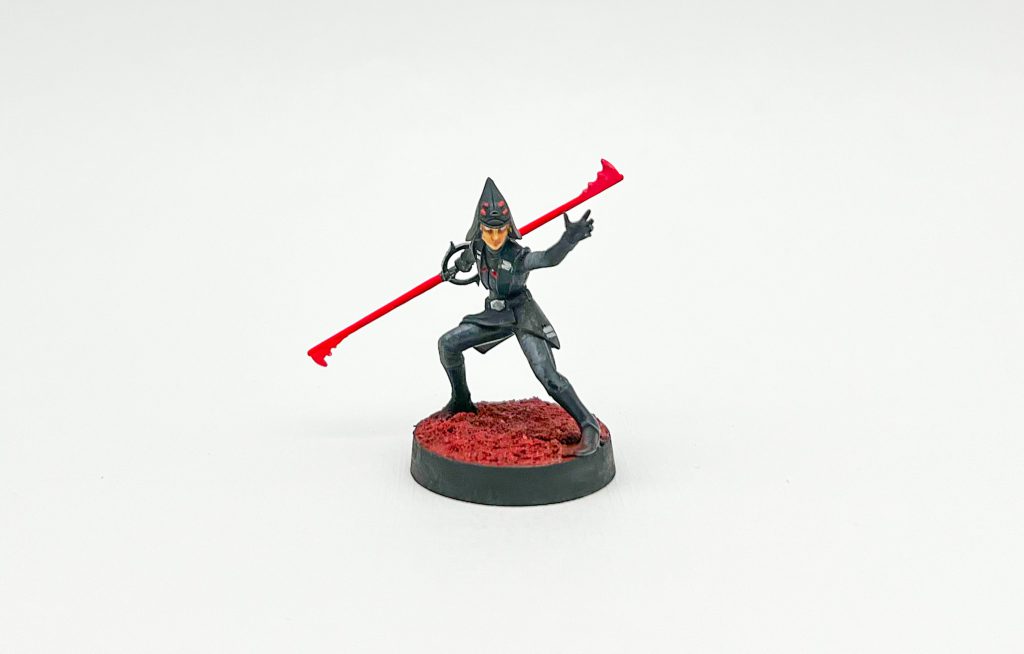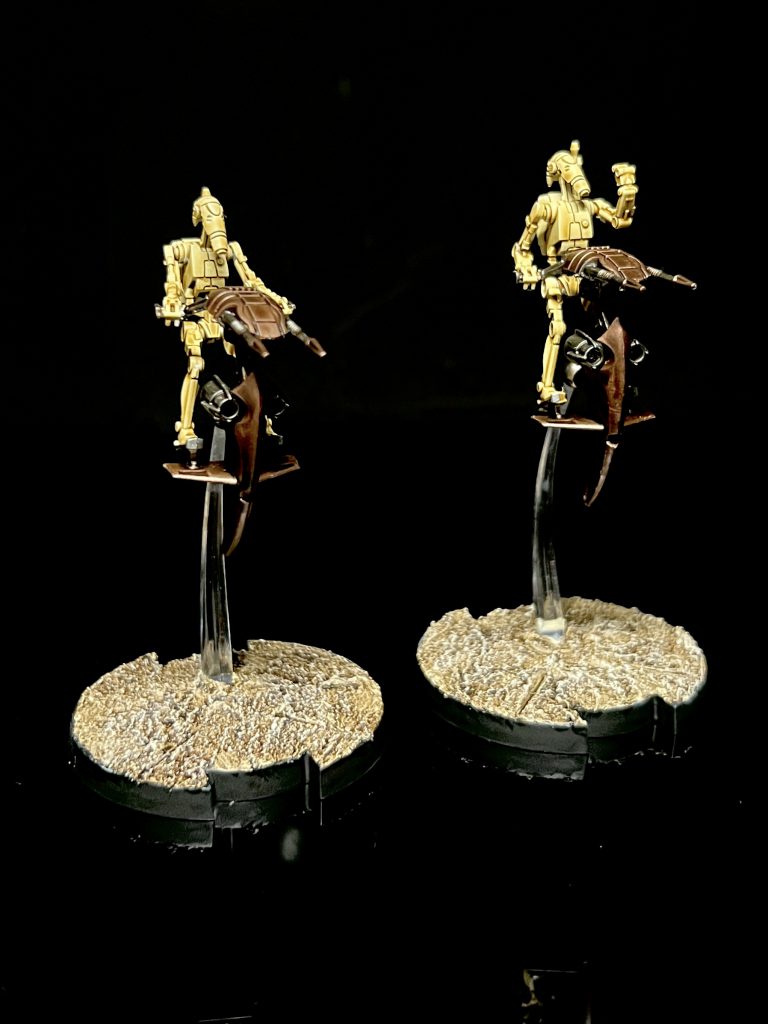A long, long time ago in a galaxy far, far away…
Hello there! I’m Matt, and I’m updating the wonderful work done by Lunar Knight, who updated the work done by Ragnarok Angel before that. To carry a metaphor from the last iteration, you can look at this little series as Return of the Jedi to that second article’s The Empire Strikes Back.
Table of Contents
What is Star Wars Legion?
Star Wars Legion, or Legion for short, is a skirmish war game originally produced by Fantasy Flight games. As of 2021 production has moved to Atomic Mass Games who produces that other miniatures game owned by Disney. Like Crisis Protocol, the main draw to Legion is that the iconic characters you see in the movies are a powerful presence on the battlefield and all have very unique toolkits. Which heroes you bring can drastically change your list’s synergy and what units gel best with it. Luke Skywalker is very much a unit that wants to go in swinging into the opponent’s lines, while someone like Count Dooku wants his opponents to come to him and out duel them.
In Legion you create an army based on one of the five factions we see in the movies and television: The Rebel Alliance, The Galactic Empire, The Galactic Republic, the Confederacy of Independent Systems, and the Shadow Collective. Then build a list of units consisting of characters, soldiers and vehicles from the Star Wars films and Expanded Universe. Finally, you must build a deck of 6 “Command Cards” that offer powerful once per turn abilities. These can range from generic cards anyone can use to signature abilities unique to each commander.
Command cards come in three varieties:
- Generics, which can be used by everyone but lack any benefits other than generating orders.
- Faction-specific, which offer minor bonuses anyone in a given faction can use, but usually only affect specific units.
- And finally we have the Character-specific command cards which can only be taken if the given character is in your list. These are typically the most powerful cards and usually ensure that the character they belong to will have an order issued to them, though once the character they belong to has been removed from the game they can no longer be played. Each player typically starts with a seven card hand with two of each 1pip, 2pip, 3pip card and one 4pip card that will always be “Standing Orders”. The player who selects the card with fewer pips on it goes first, rolling dice as a tiebreaker.
The final step of the list building phase allows you to select which mission, deployment and battlefield condition cards you’d prefer. You pick 4 of each of these, and they will be laid out in a random order for you to pick from. Players then get two turns choosing whether or not to discard the leftmost card of each type, until each player has removed two cards or passed. So while there is a degree of randomness there is strategic choice in being able to select a mission your army is best at.
The game uses a 3’x6′ battlefield (or 3×3 for smaller skirmish games). From there you and your opponent compare the point total of your lists, the player with the fewest points gets a strong advantage, as their deck will be used in deciding which mission and deployment the game will use. Once everything has been determined you set up the map, and then your army.
From there, each turn consists of both players playing their command cards, issuing orders based on what their command card states. This is where the game’s “Fog of War” mechanic starts to come into play. To represent the general chaos of the battlefield, certain units near the commander are issued orders, and a token is placed next to them. The rest of the tokens representing your army are placed face down in a stack at random or shuffled in a bag called the “Order Pool”. Players then alternate turns, with the player who played the lowest “pip” card first. On a player’s turn they may select a unit with an order issued to it or draw one randomly from their order pool for the round until six rounds have been played. Once turn six has ended the winner is chosen from whoever has the most victory points based on the objectives, with a tie breaker on who destroyed the most of their opponent’s forces.

Why should I even play this?
To keep it simple: It’s Star Wars. It’s in the title of the game and it oozes everywhere in the feeling of play. If you were to take a cursory glance at the game you can tell that the people behind this game have a strong passion for the series. You see a model like Obi-Wan in his signature Soresu pose while in the same outfit from the Clone Wars. If you know what those words mean you will identify with its flavor. Many of the franchises’ most quotable lines make it into the game as abilities you can use.
Those that aren’t Star Wars nerds will discover a deep and thoughtful game with loads of strategy. Something as simple as how many points you build your list with can dictate the flow of the game. Do you kit out your units with upgrades to max out their potential? Do you just build conservatively around two key units and have a larger bid to be the Blue player? Maybe you just spam the board with loads of cheap units and out activate your opponent to get cheap shots in. The strategy is yours to come up with.
Is it Possible to Learn this Game?
Indeed, and you don’t have to go to any opera houses with shady Chancellors to do so. All the rules can be found for free on the official Legion website.
Choosing a Side
So back to those five factions: we have the Rebels, Empire, Republic, CIS, and Shadow Collective, and since the last update by Lunar Night the five factions have further developed their own identities, or in the case of SC, come into existence. While there is some degree of flexibility, there are certain strengths to each force. The balance is pretty solid right now and any faction can win against any other. You will rarely have to worry about coming into a game you absolutely cannot win, even if it might be a bit of an uphill battle.
Galactic Empire
With troops clad in armor and having a wide variety of long range weapons, the Empire is a very easy to play gunline faction. Most imperials have access to weapons that allow them to attack their opponents at range four or have the “Suppressive” keyword which allows you to potentially reduce the number of actions a unit can take. With these abilities, Empire troops have ways to limit their opponent’s actions or cause them to panic off the board. Combined with commanders who can give out Aim tokens or extra actions (for a cost), you have a faction that wants to position itself to maximize their offensive potential even if they’re typically using the worst dice for their attacks. To paraphrase a certain famous Grand Moff: “Fear will keep the local systems in line.”
Play if:
- You like durable troops who can hold out against heavy fire.
- You like to dismantle your opponent with fear and suppression
- You want an army that can excel without too many complicated mechanics

Rebel Alliance
While the Empire shoots like Stormtroopers but have strong armor, Rebels are the opposite where their offense is fairly good in exchange for having bad defense. To balance out that poor defense, many Rebel troops have access to Dodge tokens which can negate hits, or abilities that allow them to reroll or gain more defense dice to help block hits. This means they can’t take a blaster to the face like the Empire or Republic but they have sneaky ways to get around it. The real strength in the Rebel faction is their characters and special units. Their characters are impactful to the game with powerful threats like Luke Skywalker, Cassian Andor and Sabine Wren and support characters like Leia Organa or Chewbacca backing them up. You can use fast units like Tauntauns or Snowspeeders to get up the board quickly, or focus hard on objectives with Mandalorians and Pathfinders who can “deep strike” onto an objective or have the mobility to go after your opponent’s objectives while being extremely resilient. Remember that you have hope. Rebellions are built on hope.
Play if:
- You like finesse armies with hit and run tactics
- You want a variety of playstyles and compositions
- You like Hero-centered armies
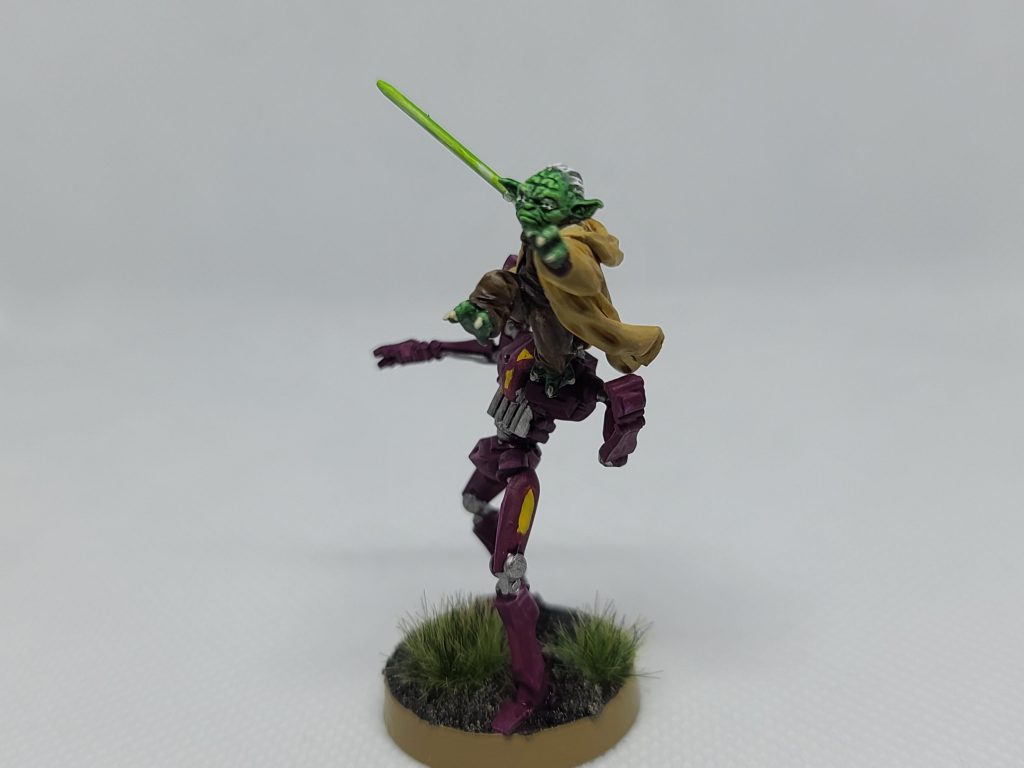
Grand Army of the Republic
With warriors cloned from the most feared bounty hunter in the galaxy and led into battle by members of the Jedi Order, the Republic is seen as the “Elite” Faction in Legion. Using their faction mechanics, their basic troops can easily match up against the other factions’ superior units. The unique mechanic the Republic brings into the game is the ability to share the game’s various tokens among the clones as well as pumping more shots into a target with their Fire Support ability that is shared in their basic troops. Your force may be fewer, but with your brothers at your side, you’ll always have your opponents outnumbered. Though a Jedi General does help.
Play if:
- You want an elite force.
- You enjoy a strong gunline
- You enjoy coordinating and managing your army heavily to victory.
Confederacy of Independent Systems
Quantity has its own quality and the droid army of the Separatist is packed with loads of battle droids to swarm your opponents. On paper the basic B1 battle can be seen as the worst unit in the game as they shoot like Stormtroopers and take hits like Rebel Troopers, but they are key to the separatist strategy. While other factions have limited control over their army due the game’s “Fog of War” mechanic, with proper positioning of your troopers you can issue orders to most if not all of your army. Just be mindful of their faction drawback, AI. If a droid unit is not issued an order, they can only perform prescribed actions as their first action. The CIS is also home to one of the best tanks in the game with the AAT so if you’re an Imperial Guard player both your strats are represented here.
Play if:
- You enjoy “horde” or “swarm” armies
- If you want to ignore several rules
- You aspire to be a tactical genius with full control over their forces
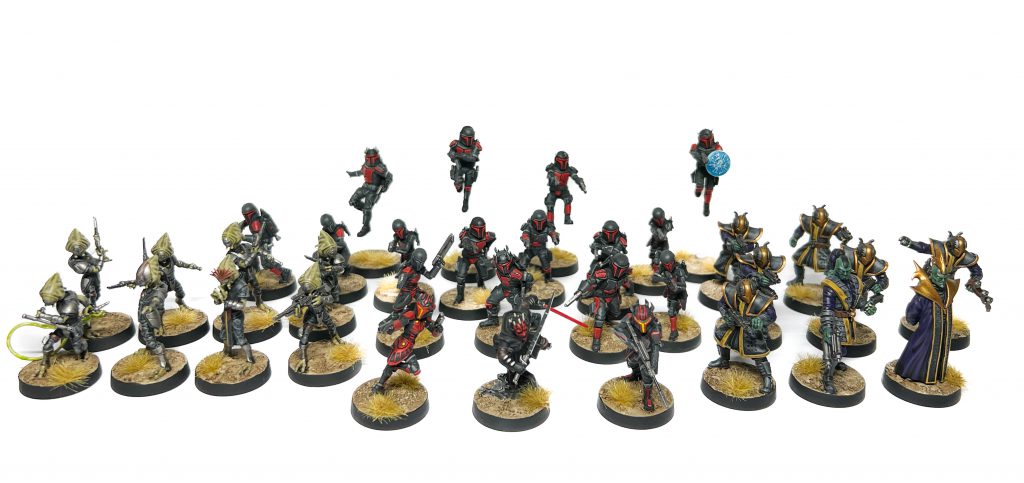
Shadow Collective
If you’re into bounty hunters, scoundrels, and thugs, the Shadow Collective is the faction for you. The game’s first “mercenary” faction, most of the named, recognizable characters of the SC are unique to their force while the troopers can be used in a number of different armies. To support this, none of their units really outshine the other factions’ basic troops in flexibility, but they make up for it by being very powerful in specific roles. The Black Sun Enforcers, for example, are incredible at destroying any unit they encounter in close range, but can’t contribute much if they get caught out at range. If you like the idea of exploring the criminal side of the Star Wars universe, or want to start a second army to supplement your first, check them out.
Play if:
- You enjoy Darth Maul’s story arc after The Phantom Menace
- You want the challenge of using specialized units to their full potential
- You like high-speed, high-aggression lists with lots of vehicles
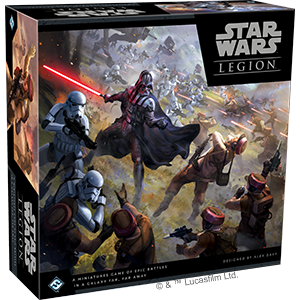
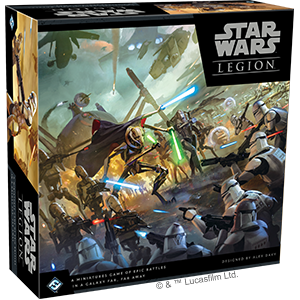
“This is Where the Fun Begins.”
So you’ve taken a look at the models and found the faction that most fits your play style or just looks the coolest. The first way to start is with either the Galactic Civil War or the Clone Wars core sets since both will provide you with a commander, two core troopers, and a support unit along with the various upgrades, command cards, battle deck cards and unit cards. In addition to all the units you will also be getting a set of movement tools, range tools, dice and some barricades to be used as terrain along with a generous amount of the game’s tokens that you’ll need for the game. All this is at an extremely good price point and is often suggested to go in with a friend so you both can pick up a core set, trade the units inside as well as the games various tools.
The second way to go is with a Battleforce box. For the four initial factions, these are a heavily themed box of models that will get you pretty close to a full 800 point army. They’re not the most flexible lists, but you get a lot of models for your dollar. This is also the only way to start Shadow Collective, as they have a smaller Battleforce box that has Maul and one of each of their basic units. If you go this way, you’ll need to also pick up the Essentials kit and a set or two of dice to have everything you need to play.
Either way you go, we would suggest picking up a 3×3 gaming mat and downloading the free Skirmish rule-set from the website. Skirmish can best be described as the “diet” version of the game as it uses smaller armies and a smaller battlefield. It’s a great place to learn the mechanics of the game from activation control to how to best utilize certain units. It is very beginner friendly and there are a set of deployment, mission, and condition cards that are balanced around the smaller point total and table. The nice thing about these battle cards is that they are very similar to their standard format counterparts so you can figure out which cards would be best for your playstyle when you get a chance at larger games.
“Do or do not, there is no try.”
Legion is still a growing game and at the time that this article is written Atomic Mass Games just announced the next expansions to the game will be bringing new stuff to each faction, starting with some units based on Andor and then going through the republic and CIS. Starting next year we’ll see rereleases of the original models in hard plastic, updating them to match with the current high standard of sculpting seen in modern releases.
So go down to your local game store or use their online store if they have one, pick up some models and get playing. Stay tuned for more Legion articles in the future – we’re looking forward to helping walk you through the Journey.
If you have any questions or comments please post them below or email us at contact@goonhammer.com.

